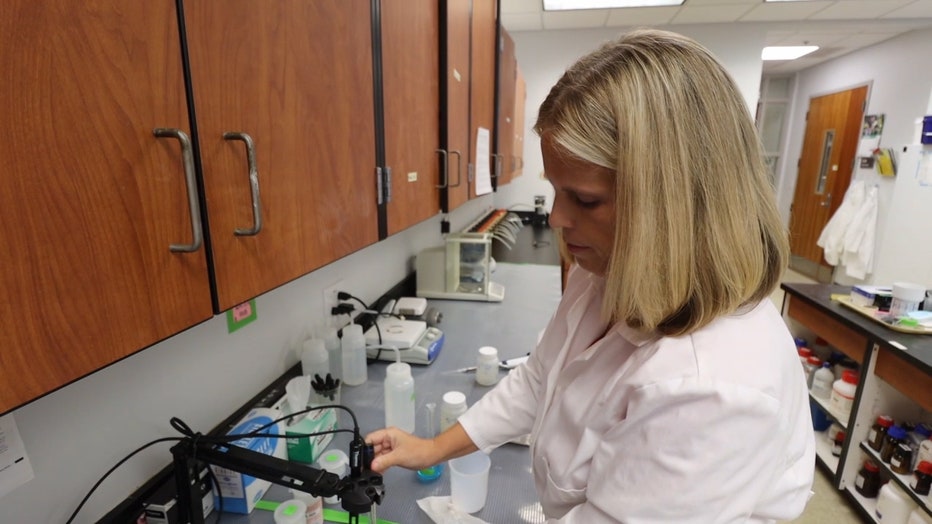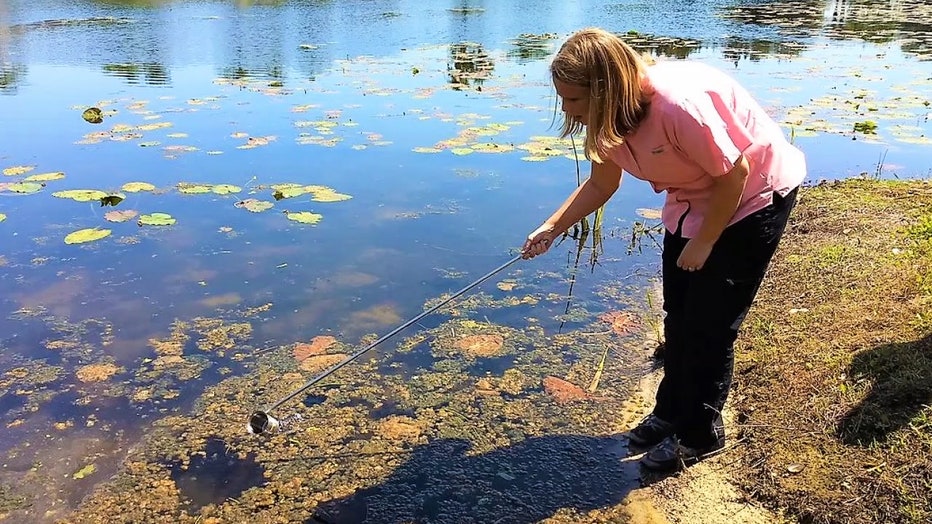Grasshopper altered woman’s career path, leading her to become an expert on Florida’s water quality

Professor initially wanted to be a broadcaster, then a grasshopper came along
For Mary Lusk, a professor of soil and water at UF, it took a random encounter with a grasshopper to change her major in school. Now, her research answers important questions about water quality in Florida.
WIMAUMA, Fla. - While most Floridians spend half the year dodging rainstorms, Mark Lusk is running after them.
"I actually really like being out in the rain, collecting rain samples," she said with a laugh.
Mary is a professor of soil and water at the University of Florida Gulf Coast Research Center in Wimauma.
"I always tell people that means I study mud for a living," she joked.

Mary’s research answers important questions about water quality in Florida, including ways to mitigate the effects of pollutants that fuel red tide blooms.
"We want those waters to be clean and pretty and to be something that can be attractive for us to go to and visit," she said.
Her career path towards environmental science wasn’t always so clear.
"I started out in college in broadcast communications," Mary said.

As fate would have it, a brief encounter with a grasshopper during Christmas break in college would point her in the right direction.
"I was so interested and engaged in watching how it moved and what it was doing and I remember thinking, ‘I really enjoy this,’" she recalled.
READ: ‘I love my job’: Female engineer turns love of math into TECO career
Mary went right back to school and changed her major. Eventually, she found a passion for teaching students in her lab.
"They are really just passionate about solving problems and helping people and helping the environment and I love seeing that in them," she said.
She always has the same advice for younger generations of scientists following in her footsteps:
"Ask questions. Get in the habit of asking questions."

